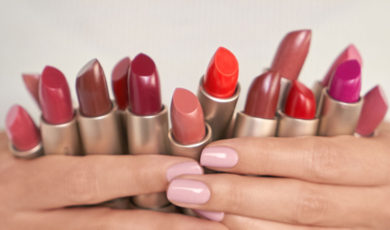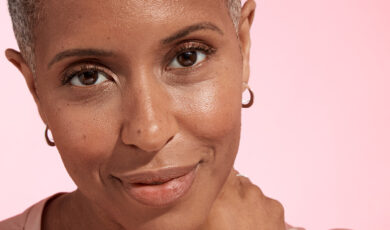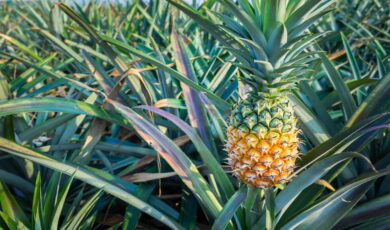Decoding Your Skin Barrier
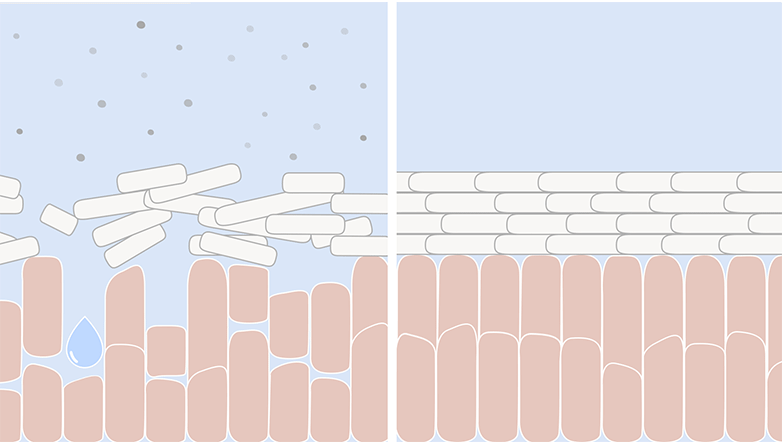
In celebration of our new SKINLONGEVITY Long Life Herb Collection, we’re exploring the topic of skin’s barrier. The skin barrier is an integral part of skin immunity that defends against external aggressors. SKINLONGEVITY Long Life Herb Collection makes the skin barrier stronger. In fact, SKINLONGEVITY Long Life Herb Serum is clinically shown to strengthen skin’s barrier by 45% to better defend against aging environmental stressors.* Our patented hero ingredient, Long Life Herb Extract, helps reduce visible signs of aging and damage, promotes resiliency and suppleness, and protects the skin. Inspired by our new and improved skin-strengthening products, we decided to break down what exactly the skin barrier is, how it gets damaged, and how you can best support yours.
Whether flipping through magazines, scrolling through beauty websites, or shopping for skincare products, you’re apt to run into the phrases “skin barrier” and “moisture barrier.” Though referenced frequently, it’s safe to say that many people don’t really understand what the skin barrier is, how it’s impacted by daily aggressors, lifestyle factors (including aging), or why it’s important to keep it healthy and strong. With dermatologist insight, we’re decoding everything you need to know about your skin barrier so you can pay it some thanks and give it the TLC it needs.
What’s the Role of the Skin Barrier?
Long story short: the skin barrier is what keeps outside gunk from getting into your body and prevents the beneficial inside stuff (including moisture) from escaping.
It’s a combination of the outermost layer of skin cells — referred to as the stratum corneum, composed of compact dead skin cells — and a lipid matrix that’s made up of ceramides, cholesterol and fatty acids. To help visualize, think of the stratum corneum as bricks and the lipid matrix as mortar.
“The importance of the skin barrier cannot be overemphasized, as it is extremely important in human life,” says Dr. Jason Emer, a board-certified cosmetic dermatologist based in Hollywood, CA. “Physically, it protects us from external threats such as infectious agents, chemicals, systemic toxicity and allergens. Internally, the skin helps to maintain homeostasis and protects from enhanced loss of water from the body.”
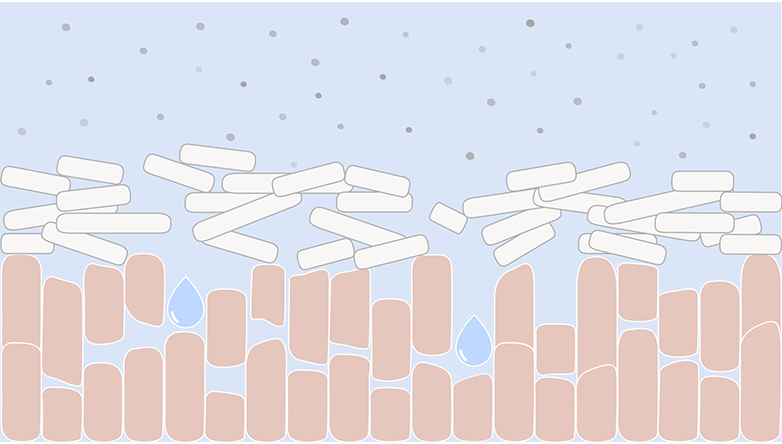
What is a Damaged Skin Barrier?
A well-functioning and healthy skin barrier works brilliantly to help keep skin hydrated and consistent in tone and texture. By contrast, a compromised barrier may lead to rough texture, increased sensitivity, rashes and breakouts.
The following factors can negatively impact the skin or moisture barrier:
Genetics: “Genetics play a huge role. For example, those with history of eczema, seasonal allergies or hay fever tend to have more irritated skin regularly,” says Dr. Emer.
Inflammatory Ailments: Dr. Emer explains, “Certain inflammatory conditions, including psoriasis, rosacea and cystic acne tend to result in damaged or weakened barriers that need replenishing and repair.”
Overexposure to Ingredients/Elements: “Harsh acidic products that are overused, strong detergents, over-scrubbing of the skin, sun exposure, wind, cold damage (chapping) and chronic UV damage are stressors to the skin barrier,” says Dr. Anna Guanche, a board-certified dermatologist and founder of the Bella Skin Institute in Calabasas, CA. “In moderation, AHAs are a benefit to the barrier, but overdoing them to where the skin is raw is by definition damaging to the barrier.” Lasers, microneedling, and dermarolling can also create a damaged skin barrier.
Lifestyle: “The same lifestyle factors that can affect your skin overall can damage the moisture barrier. That includes not drinking enough water, drinking too much alcohol or caffeine and smoking,” says Dr. Emer.
Age: As time marches on, our skin falls prey to an accumulation of UV damage and undergoes a depletion of naturally occurring substances such as collagen and elastin. This diminishes the skin barrier, leading to thinner, drier and more sensitive skin.
Raw, peeling, red, inflamed skin are all signs of a damaged skin barrier. Other signs include skin that’s very sensitive to the touch, a feeling of tightness, or skin that bruises or tears easily.
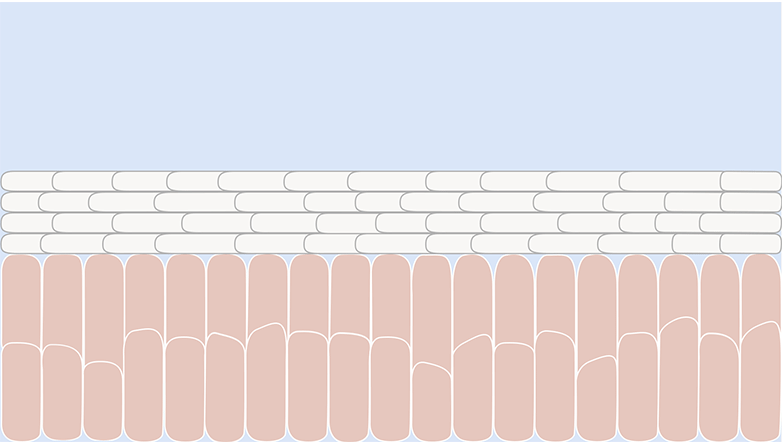
How to Support Your Skin Barrier
“Our skin should be very elastic, calm and uninflamed — not flaky, and not overly sensitive to touch or products applied,” says Dr. Guanche.
The best way to achieve this is by protecting your skin from sun exposure and environmental aggressors, and by adopting a skincare regimen that takes a gentle, strengthening approach. The best ingredients to incorporate include SPF, antioxidants, ceramides, niacinamide, fatty acids, and humectants — including hyaluronic acid, glycerin and sorbitol.
Of course, you can still use AHAs or BHAs, and you don’t need to completely write off laser treatments, chemical peels or other professional skincare services. While some people — particularly those already battling a compromised barrier — must consult with their dermatologist before partaking, many people can benefit from gentle exfoliation.
The rule of thumb is to sparingly use chemical and physical exfoliants to help brighten and smooth skin, “but never to the point of irritation,” says Dr. Guanche. More intense, in-office treatments should always be done under the guidance of a well-reviewed, certified professional to ensure your skin’s health isn’t compromised.
*Based on an 8-week Canadian clinical study of 29 female subjects (TEWL 4-week data read).

